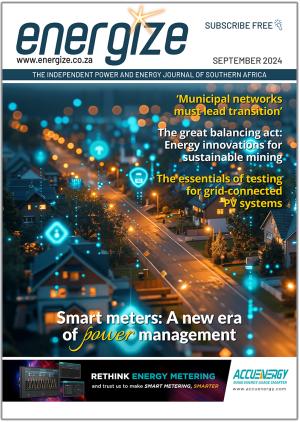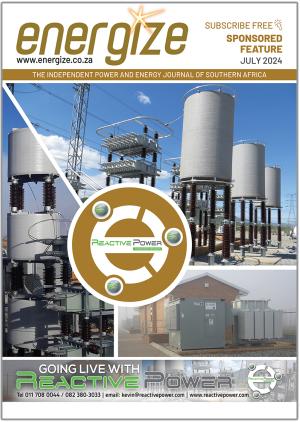Technological advancements, shaped by evolving consumer expectations, are shifting the utility management industry from its traditional focus on meter readings and straightforward billing towards a more integrated, dynamic and sustainable model, says Frikkie Malan, Chief Commercial Officer of Remote Metering Solutions.
The age-old practice of monthly meter readings is drawing to a close in the face of the modern world’s dynamic and fluctuating energy demands.
Traditional methods and legacy systems no longer suffice to capture the complete picture of energy consumption and building operations, necessitating a shift towards real-time load profile consumption data enabled by smart metering.
The transition to smart metering isn’t solely about collecting more data; it’s about ensuring accurate, transparent billing and leveraging actionable intelligence to optimise energy use, reduce costs and downtime and improve decision-making.
Real-time analytics of energy consumption data facilitate predictive maintenance by identifying concerns before they escalate.
Valuable consumption data delivered by smart metering enables effective energy management and streamlined maintenance processes. Decision-making is accelerated with higher-quality outcomes.
Diversified energy mix
Reliance on a single grid is outdated and energy diversification, or using different energy sources to meet demand, has become imperative. The challenges of load shedding, the urgency of decarbonisation and the volatility of energy markets demand a more flexible, resilient approach.
Today, the new normal consists of a blend of generators, embedded solar panels and energy wheeling and storage solutions. This mix characterises the modern energy landscape, enabling property owners to meet their tenants’ needs consistently, smoothing fluctuations and decarbonising operations[EL1] .
Integrating renewable energy sources with existing systems requires meticulous planning and management and adequate infrastructure and business processes to ensure grid flexibility, demand response, reliability and efficiency.
Active participation
Investing in the latest technology alone is insufficient when managing energy use in buildings. Success often relies on behavioural factors. The International Energy Agency calculated that changing human behaviour and creating awareness can realise up to 25% of energy efficiency potential and smart metering is an essential technology to provide the information to motivate people to reassess their habits.
The role of tenants in energy management is crucial and undergoing a significant shift. Most of today’s tenants are informed, environmentally conscious and financially savvy. They demand a say in their buildings’ energy sources with a keen interest in the environmental benefits and financial savings of alternative energy sources. Investments in the requisite smart metering technology are required to empower tenants to participate and actively take ownership of their usage habits.
New value propositions
The wealth of consumption data available today presents a gold mine of untapped potential. However, data remains useless unless it becomes actionable intelligence that provides insight into consumption patterns, behaviour and system response.
Beyond billing and recovery, data-driven insights are key to unlocking enhanced customer experiences and new value propositions and insights to drive the transition from traditional utility management to a converged solution. By adopting integrated smart systems, property owners can optimise utility recovery, drive sustainability and benefit from remote, real-time asset management. Through the strategic adoption of technology, utility managers can redefine the value of their offerings. In this new era, utility management is about more than just billing tenants; it’s about driving efficiency and embracing sustainability.
















